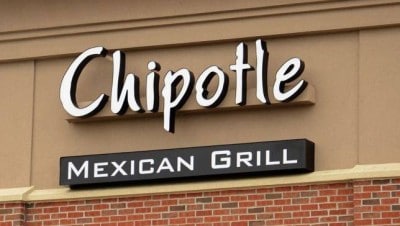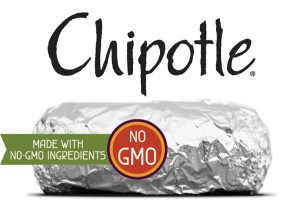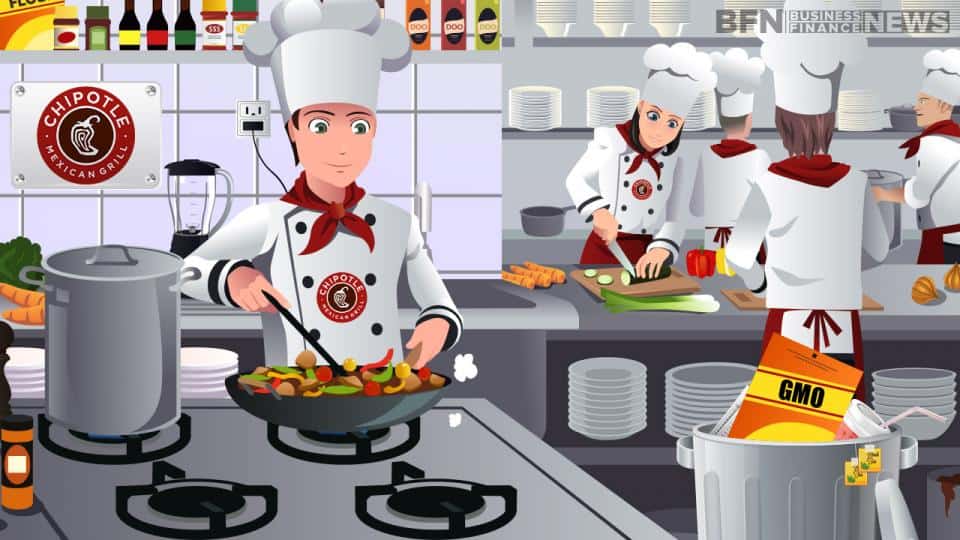
With many alternative media sites raising awareness about the ill effects caused by genetically modified crops (including environmental damage, increased use of herbicides on the ‘Roundup Ready’ crops, and still-to-be understood adverse health effects posed to humans), consumers have begun to pull their support from fast food joints like McDonalds, and instead seek healthier, more sustainable options elsewhere.
To meet this increased demand for organic, GMO-free food, Chipotle Mexican Grill has become the first major restaurant chain to serve only cuisine which is free of genetically engineered ingredients. This new switch took place on April 27, 2015.
“This is another step toward the visions we have of changing the way people think about and eat fast food,” said Steve Ells, founder and co-chief executive of Chipotle. “Just because food is served fast doesn’t mean it has to be made with cheap raw ingredients, highly processed with preservatives and fillers and stabilizers and artificial colors and flavors.”
Chipotle has been a progressive leader in the restaurant industry for a while now. Back in 2013 the chain began to label their menu and indicate which foods contained genetically modified ingredients. And as expected, other small restaurants began to slowly follow suit.
It’s unknown whether other large restaurant chains will follow Chipotle’s lead, as demand for high-quality products makes them more expensive, and in effect more difficult for restaurants to obtain the amounts needed for large-scale production. What is clear, however, is that there certainly is a market for organic, natural food, and Chipotle has leapt to meet that demand.
As NYTimes noted, ‘ridding the supply chain of genetically altered components is difficult. They lurk in baking powder, cornstarch, and a variety of ingredients used as preservatives, coloring agents, and added vitamins, as well as in commodities like canola and soy oils, corn meal, and sugar.
But if what holistic-minded practitioners have suspected for many years now is true, that these low-quality ingredients are contributing to modern-day diseases of affluence, then they are culprits that will inevitably need to be removed from the food supply.
Eliminating genetically altered ingredients was apparently pretty easy for the Mexican grill. This is because their entire menu uses only 68 ingredients – including salt and pepper, compared to one of their competitors which uses 81 ingredients just to produce a burrito.
Said Ellis, “The vast majority of our ingredients don’t come in GMO variety, and we use lot of whole, unprocessed foods, so it was easier for us to do.”

But what is Mexican food without some corn in the menu? As 90 percent of corn and soy grown in the US is genetically modified, Chipotle had to make a big switch by sourcing cleaner ingredients. Previously, chips were fried in soy oil, and canola – also a large genetically modified crop – was used by the establishment to cut costs.
Now the restaurant chain uses sunflower oil to fry its chips and tortillas, while a non-GMO rice bran oil will be mixed into rice and used to fry fajita vegetables. As different oils have different smoking temperatures and impart different flavors, the menu has needed to be adjusted accordingly.
According to the source, getting rid of genetically engineered corn was easiest for the chain. Chipotle’s main tortilla supplier was already producing non-GMO corn flour in small amounts, and agreed to increase its production.
Overall, Ells has said the cost of going GMO-free was “de minimis.” “It’s really mostly about the beef,” he said.
Chipotle’s transition to serving cuisine completely GMO-free is a huge beacon of hope for other fast-food companies and dining establishments. As consumer demand for natural, unprocessed food undoubtedly increases, perhaps sourcing wholesome, uncontaminated ingredients won’t seem like such a radical move for restaurant chains.
What are your thoughts? We’d love for you to comment below.
This article is free and open source. You have permission to republish this article under a Creative Commons license with attribution to the author and TrueActivist.Com.


